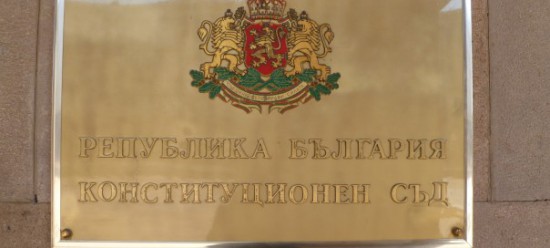Bulgaria high court to seek constitutional ruling on existence of specialised anti-corruption courts
Judges at Bulgaria’s Supreme Court of Cassation (SCC) voted on October 27 in favour of a motion to challenge at the Constitutional Court the creation of specialised courts for corruption cases.
Earlier this year, Parliament approved amendments to the Penal Procedure Code, which envisioned that corruption cases brought against senior elected officials and magistrates would be heard by specialised courts, rather than Sofia City Court.
Judges at the SCC, one of Bulgaria’s two highest courts, argued that this change was unconstitutional. Additionally, the track record of Bulgaria’s specialised courts – first set up five years ago – remains unconvincing, according to SCC analysis, specialist judiciary news website Legalworld.bg reported.
News website Mediapool.bg noted that this is the second time that ruling party GERB has attempted to hand high-profile corruption cases to specialised courts. In 2011, the party backed down in the face of opposition from inside the judiciary, including then-prosecutor general Boris Velchev, who is now head of the Constitutional Court.
It did not help matters that Parliament passed on second reading on October 27 amendments to the Judicial Act, which introduced the possibility that magistrates and prosecutors in the specialised courts could receive annual bonuses of up to six monthly salaries.
The amendments have also run into wide-spread opposition within the judiciary, with the judges union and the Justice Ministry’s council on judiciary reform both speaking out against the bill.
The Supreme Judicial Council also voted, in a motion on October 26, to criticise the proposal, although its position does not impact Parliament’s decision. The SJC motion said that the additional bonuses were an “unwarranted privilege.”
30 October 2017
Disclaimer: All views, opinions and accounts included in the RAI News Section are those of the authors; their inclusion does not imply official endorsement or acceptance by RAI. The News Section reflects the selection of topics of informative value to the organization and its stakeholders. Its content is taken from press/media sources and does not in any way reflect official RAI Secretariat policy. RAI Secretariat is not responsible for possible inaccuracies in media reports.

